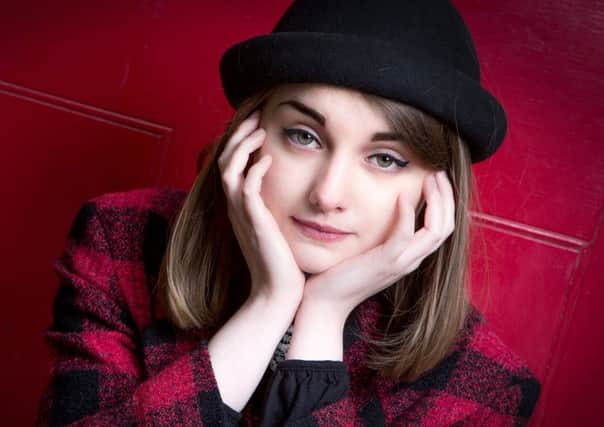Poetic voice


There is a bright new star on the Yorkshire spoken word and poetry scene.
Wakefield-based Laura Potts was recently chosen from thousands of applicants to become one of the BBC’s Verb New Voices for 2017. Now in its fourth year, the scheme is a joint initiative between BBC Radio 3, New Writing North, The Writing Squad and the Arvon Foundation.
Advertisement
Hide AdAdvertisement
Hide AdStill only 21 years old, Potts is clearly one to watch – while she was still at school she was twice named a Foyle Young Poet of the Year and in 2013 became an Arts Council Northern Voices poet and Lieder Poet at the University of Leeds.
She began writing poetry when she was 13 years old and gave her first public reading at the age of just 14 as a ‘support act’ to the Bard of Barnsley Ian McMillan at Wakefield’s famous Labour Club, The Red Shed.
“I try and do a reading every week now,” she says. “I have always felt that poetry doesn’t have just one voice – it can have many different voices. The poems on the page are different when they are read out loud.”
As a child she spent a lot of time with her grandparents and they were both, she says, an important influence on her. “I remember sitting in my grandmother’s armchair and she would read poetry to me,” she says. “She liked the greats – Keats, Wordsworth and Tennyson – and an awful lot of post-colonial literature. I was a carer as a teenager for my grandfather and he always used to tell me tales from the war.”
Advertisement
Hide AdAdvertisement
Hide AdIt is perhaps not surprising, then, that the past and the power of memory are recurring themes in her poetry. “A lot of what I write comes out of the past and specific events in childhood that I remember,” she says. “I suppose it is a way of dealing with the past in the present.” Writing has always played a significant role in her life, she says. “It was a kind of escape. I have always felt I am not really at home in the social world, so writing was something I could come back to, a kind of contemplative, creative exercise.”
Having studied English Literature at the University of York for a couple of years, Potts decided to leave the course last Christmas to pursue her own writing. It turned out to be a wise move. “I didn’t want to write about literature I wanted to write it myself and I thought ‘just go for it’,” she says. “I started looking at different writing competitions and I applied for the Verb New Voices on the very last day for entries. I sent off the application thinking there was no chance I would get it. And then I got an interview.” The award, which includes a £2,000 bursary, expert mentoring and development support, will enable her to create a collection of poems Sweet The Mourning Dew. The poems will explore the nature of grief and examine the experiences of ordinary people living with loss as a result of war.
She is currently interviewing people in the north of England as part of her research. She will then be selecting around six stories to work from and is looking forward to getting started on the new poems which will be broadcast on Radio 3. “Writing is what keeps me going,” she says. “It is the reason I wake up in the morning.”
***
POETRY REVIEW:
A young writer with an old soul, Laura Potts explores the visceral power of memory in her poetry and frequently refers to the past.
Advertisement
Hide AdAdvertisement
Hide AdIt is testament to her extraordinary talent and imagination that as a 21-year-old she writes so eloquently about ageing, loss and regret.
Poems with titles such as The History of Home, Yesterday Calling and The Past Slid Back are imbued with the wisdom of somone at least twice her age. Her wide reading – “I grew up in a family of readers,” she says – and years as a literature student are also evident in her work with one poem, Chatterley, inspired by the lovers in the infamous DH Lawrence novel and another, From Caitlin, that is written from the perspective of Dylan Thomas’s sad, conflicted wife. Friday is an incredibly moving, thoughtful and candid poem about the death of a loved one, and its legacy – she writes: ‘In a dawn darkly,/on a singing white page/at the rim of my memory,/the long wartime age/of your history/I scrawled: your lost laugh,/your long love, all the days of your life/and never your death at all.’ These are poems that lend themselves well to performance – and luckily there are plenty of opportunities to hear Potts reading in the coming weeks.
Laura Potts appears at Wakefield Literature Festival with Linton Kwesi Johnson on September 23, at Leeds University on September 27, BBC’s Contains Strong Language Festival in Hull on September 30 and at Ilkley Literature Festival, October 15.